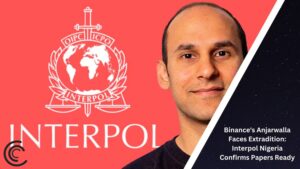Key Takeaways
- Bankman-Fried’s noted he had acted in “good faith” when loaning funds to FTX and Alameda executives
- DOJ argued that Bankman-Fried’s defense team had not provided enough detail on its argument
In a significant ruling, Judge Lewis Kaplan, overseeing the case of Sam Bankman-Fried, has barred the founder of FTX from blaming the exchange’s lawyers for its collapse or operations during his opening statements. Nonetheless, Bankman-Fried’s legal team still has the opportunity to pursue an “advice-of-counsel” defense later in the trial, subject to certain conditions.
Bankman-Fried’s defense team had previously indicated their intent to argue that FTX’s counsel had been involved in certain decisions made by the company. However, Judge Kaplan’s recent order, dated Sunday, deemed this argument, lacking specifics, as potentially confusing or prejudicial to the jury. As a result, the judge has prohibited the defense from referring to external counsel during the opening statement.
The genesis of this legal dispute centers on Bankman-Fried’s assertion that he had acted in “good faith” when loaning funds to FTX and Alameda executives, setting Signal messages to auto-delete, and establishing North American entities. He claims to have followed legal advice, including guidance from the law firm Fenwick & West.
In response, the DOJ, represented by U.S. Attorney Damian Williams, argued against permitting “irrelevant, confusing, or prejudicial” questioning, evidence, or arguments concerning the involvement of attorneys, unless more detailed information is provided by Bankman-Fried. The DOJ’s stance is grounded in a desire to prevent an undue focus on the role of lawyers without clear substantiation.
Judge Kaplan’s ruling acknowledges that the filings in the case raise questions about what constitutes “undue” focus on attorney involvement, what might suggest that attorneys had “blessed” specific conduct, and what legal theory permits evidence related to these considerations. The judge emphasized that the extent to which Bankman-Fried can argue or introduce evidence about lawyer involvement will depend on the specific circumstances of the case.
Sam Bankman-Fried, who faces a litany of charges from American and South Korean authorities, including conspiracy to defraud, commodities fraud, securities fraud, wire fraud, and conspiracy to engage in market manipulation, will not be able to invoke the “advice-of-counsel” defense in his opening statements, as the judge aims to prevent potential bias or confusion among the jury.
This decision ensures that the court will exercise discretion on a case-by-case basis regarding the admissibility of evidence and arguments concerning the role of lawyers in FTX’s affairs.











